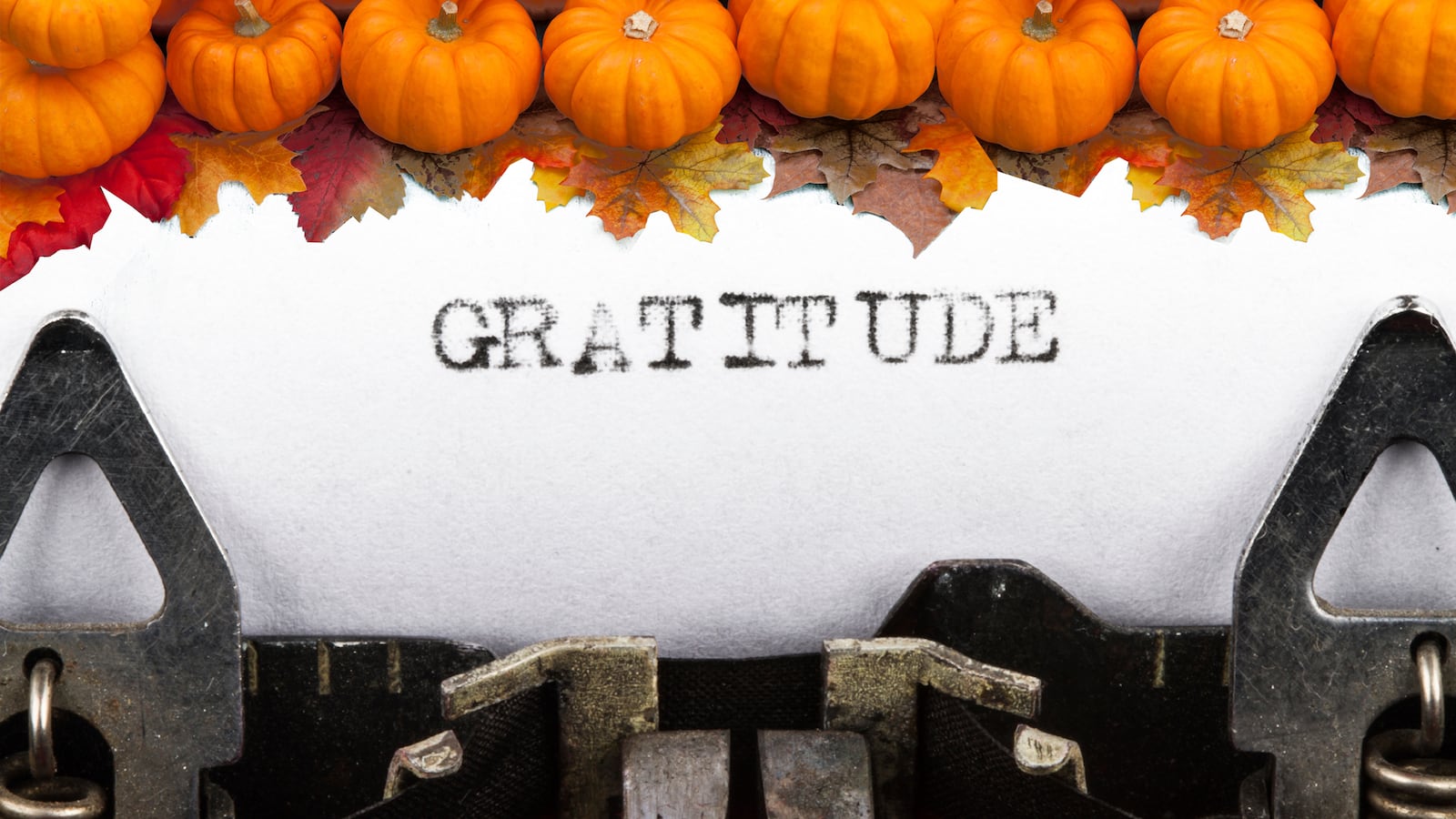I don’t have a good Thanksgiving story to tell you.
My family was, and is, nontraditional in all the ways America is becoming: It’s blended; it’s geographically disparate; it’s multi-cultural. We are riven by divorces and fused by adoptions. There are many more marriages than there are pairs of people. One could argue we are linked more closely by Facebook and our phones than by blood or temperament. There have been times we haven’t been very closely linked at all (historically, we tend to nurse grudges as if they were abandoned baby fawns and not the shadow-monsters they always become).
Our traditions and our efforts to come together at the holidays are of recent vintage, urged into existence since I became an adult and everyone started therapy. And maybe it’s because we started celebrating Thanksgiving together by choice and not habit that I love the holiday so much. I’m as aware of its colonialist trappings and synthetic history as anyone, and I won’t pretend those things don’t bother me. I don’t celebrate the Pilgrims-and-Indians Thanksgiving, the whitewashed myth that gave birth to a thousand construction-paper hats. I celebrate the day set aside to give thanks.
It’s artificial, but of course it’s artificial. Is there a holiday that isn’t? I appreciate that Thanksgiving wasn’t created with a gift-giving apparatus in mind. Thanksgiving doesn’t celebrate any specific thing, or honor any particular person. Thanksgiving has come to be synonymous with tryptophan comas and dinner table cold wars, but it’s the one secular holiday that doesn’t really demand anything but a state of mind.
To declare War on Thanksgiving, you’d have to eliminate the day entirely. That’s probably why the assault begins 24 hours later. Thanksgiving may not have a natural origin, but Black Friday was practically created in a lab. It is the antithesis of Thanksgiving, where we immediately spend not just money but also whatever spiritual capital the performance of our gratitude may have earned.
You can knock Thanksgiving as overindulgence, conspicuous consumption of the most literal type. Thanksgiving is, I know, not just the day where diets come to die, but an occasion for the “haves” to have another helping. Groaning tables and busted waistbands in a world where so many have so little might seem irretrievably obscene: millions of us enacting same diorama of American privilege with the same props at the same time on the same day of the year.
This is all redeemed by the remembrance of blessings both big and small. You can overindulge, but you’re not allowed to take it for granted. On most days, most of us don’t think about how lucky we are to sit down to a meal. On Thanksgiving, the celebration of that good fortune is why we’re sitting down at all.
We often require exposure to what others lack in order to appreciate our bounty. This holiday season, it’s difficult for average Americans—especially a white one, this white one—to escape the weight of her privilege. My community is hosting Syrian refugees. On Tuesday night, a Black Lives Matter march passed my front door. Images from these ongoing stories can be a stinging corrective to any complaints I have about dry turkey or checkout lines, but I think it’s good to be cautious about gratitude conjured from comparison. It’s a kissing cousin to schadenfreude, only a half-step removed from pity, and easily perverted into resentment.
Gratitude can be exercised like a muscle, and it’s best strengthened not just by acknowledging your gifts in relation to others but celebrating them as they are. It’s the difference between feeling more fortunate than the average schmuck and taking joy from being exactly who you are.
My own light load/high rep thankfulness workout is simple: A few years ago, five other women and I committed to a nightly “gratitude text.” We are not perfect nor are we particularly profound. In the past few days, we’ve given shout-outs to “Salty pretzels,” “finding my phone,” “yoga,” and “Tylenol.” But over the years, we’ve also given witness to thanks for “getting engaged,” “new puppies,” “compliments out of nowhere,” “staying sober,” “successful open heart surgery,” and the multitude of miracles covered by having “hope,” “acceptance,” or “faith.”
We miss days (I miss days), but among the six of us, someone usually remembers—and then the rest of us chime in. The list is a collective EKG of our spiritual health, except it does more than measure, it multiples.
Gratitude doesn’t seem precious; manufactured materials seldom do. Like Thanksgiving itself, gratitude isn’t something that just happens. Gratitude has to be summoned and acknowledged. Gratitude doesn’t even come fully into being unless it’s shared with someone else.






